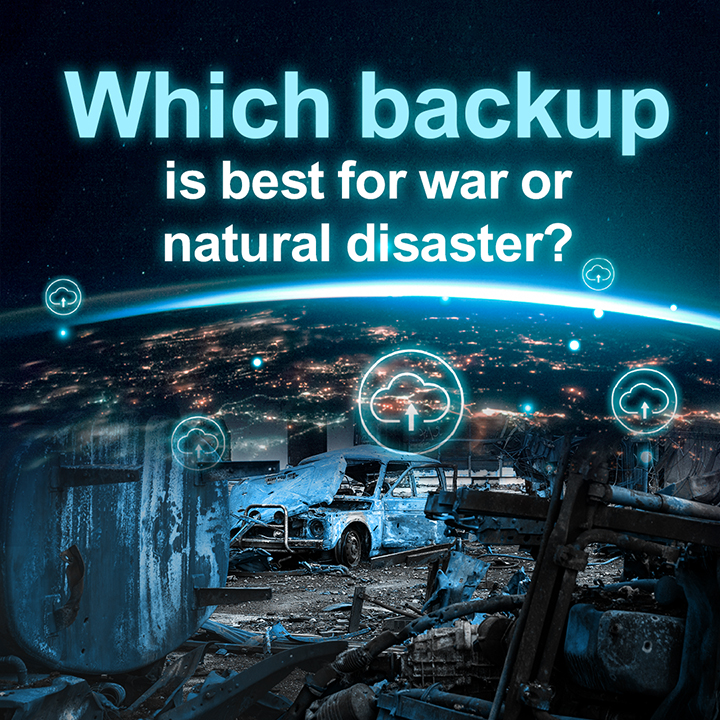In times of war or natural disasters, data loss can be devastating. Organizations and individuals alike need to be prepared for such situations by having reliable backup systems. But with so many options available, which type of backup is best suited for these challenging circumstances? In this blog post, we will explore three types of backups and discuss their advantages and disadvantages in war or natural disaster situations.
Cloud Backup
Cloud backup has recently gained popularity due to its convenience and accessibility. With cloud backup, data is stored on remote servers maintained by a third-party provider. This type of backup is ideal for war or natural disaster situations because it ensures that your data is stored off-site, away from the affected area. In a disaster, you can easily retrieve your data from any location with an internet connection. However, relying on the cloud means you depend on the provider's infrastructure and internet connectivity. In war situations, access to the cloud might be restricted or compromised, making this type of backup less reliable.
Local Backup
Local backups involve storing data on physical devices such as external hard drives or tape drives. This type of backup provides an added layer of security since the data is physically in your possession. Local backups can be a reliable option in war or natural disaster situations, where internet connectivity may be disrupted. However, there is always the risk of these physical devices being damaged, lost, or stolen. Therefore, storing them in a secure and remote location is essential to ensure your data's safety.
Hybrid Backup
A hybrid backup combines the benefits of both cloud and local backups. It involves creating multiple copies of your data, with one copy stored locally and another in the cloud. This approach offers the best of both worlds, providing the convenience and accessibility of cloud backup and having a physical copy for added security. In war or natural disaster situations, a hybrid backup can be an excellent choice as it ensures redundancy and increases the chances of data recovery. However, maintaining local and cloud backup systems also requires more resources and careful management.
There is no one-size-fits-all answer when choosing the best type of backup for war or natural disaster situations. Each option has its advantages and disadvantages. Cloud backup offers convenience and accessibility but may be less reliable in war. Local backup provides physical control over your data but carries the risk of physical damage or loss. Hybrid backup combines the benefits of both cloud and local backups but requires more resources to maintain. Ultimately, the choice will depend on your organization's specific needs and circumstances or personal data. It is crucial to assess the risks and weigh the pros and cons of each backup type to make an informed decision and ensure the safety of your data in challenging times.
Ahsay is a global backup company. Users are flexible and scalable to backup valuable files, databases, virtual machines, and Microsoft 365 data. We support anywhere-to-anywhere, multi-destination backup. Ahsay is widely used by globe any size of organization. Get the best offer and a free trial here.
